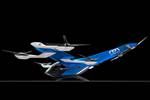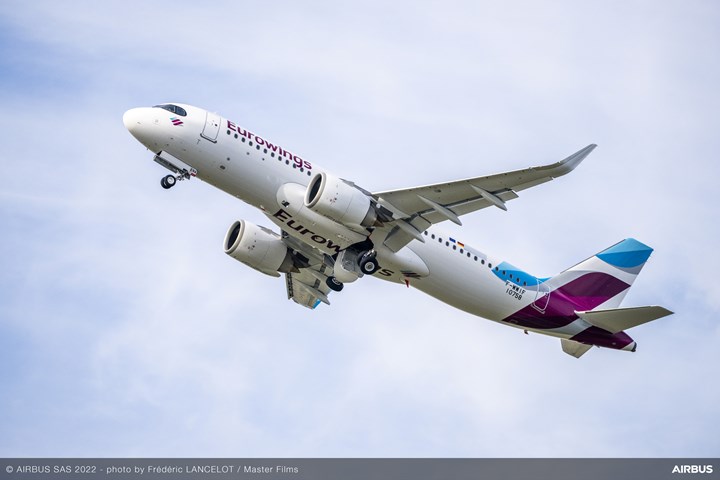Airbus commits to A320 rate increase among persisting supply chain concerns
Intentions to increase rates to 75 aircraft per month over the next three years reflects Airbus’ confidence in its Q1 performance, commercial aircraft demand and the ability for the supply chain to manage the ramp up.
Airbus (Toulouse, France) has confirmed its intentions to increase A320neo family production rates to 75 aircraft per month over the next three years. The proposal comes despite the company facing warnings and pushback from some suppliers over previous plans to boost A320 production to 65 by summer 2023 due to persisting supply chain concerns.
According to Aviation Weekly, work for the additional 10 aircraft will be spread across all of its sites, but its Mobile, Alabama, facility will be expanded to include a second A320neo-family final assembly line (learn more in this recent podcast). All sites will be made capable of building A321neos, and that aircraft’s production share is expected to continue to rise.
“We see continuing strong growth in commercial aircraft demand driven by the A320 family,” says Airbus CEO Guillaume Faury. Airbus has shared its plans with engine manufacturers and is “confident in the supply chain being able to manage” the ramp up, he says, noting that the company has assessed a large number of suppliers with “feedback that tells us [the rate increase] is possible.”
Simple Flying suggests that the company’s confidence partially resides in a supply deal with engine makers Safran (Paris, France) and MTU (Munich, Germany) in May, which will run through 2024. The manufacturer’s pre-COVID record for A320 production was 60 jets a month.
Airbus will introduce the ramp up “progressively,” Faury says, but adds that giving precise monthly delivery figures for 2024-25 would be “premature.” He points out that a “lot of challenges” remain in the short term — including the continuing recovery from the pandemic — which bring complexity to the supply chain, and indicates that, while there are no significant departures in quality, the ability of suppliers to deliver on time is “changing tremendously.”
In its latest Q1 2022 report, Airbus announced “solid performance across our commercial aircraft, helicopter and defense businesses” and a forecast of 720 commercial aircraft deliveries by end of year. Despite the delay to the A321XLR, Airbus hopes its increased A320 output will help it further cement its position over Boeing (Chicago, Ill., U.S.) as the leader of the narrowbody market.
Related Content
-
TU Munich develops cuboidal conformable tanks using carbon fiber composites for increased hydrogen storage
Flat tank enabling standard platform for BEV and FCEV uses thermoplastic and thermoset composites, overwrapped skeleton design in pursuit of 25% more H2 storage.
-
Syensqo becomes new Solvay specialty materials company
Syensqo represents what was Solvay Composite Materials, focused on delivering disruptive material technologies and supporting growing customer needs.
-
Recycling end-of-life composite parts: New methods, markets
From infrastructure solutions to consumer products, Polish recycler Anmet and Netherlands-based researchers are developing new methods for repurposing wind turbine blades and other composite parts.

















